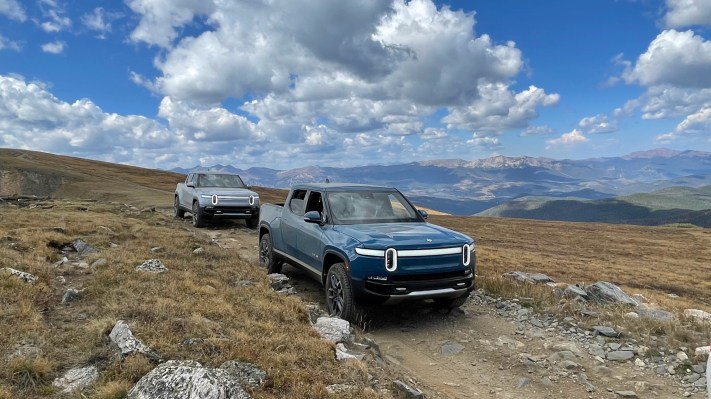[ad_1]

Rivian may still be burning through cash, but its managed to narrow losses and generate more revenue as the automaker sells more of its EVs while paring down costs.
Rivian reported Tuesday $661 million in revenue in the first quarter, a nearly seven-fold increase from the same period last year when it was plagued by supply constraints and production woes that curbed deliveries. The company’s Q1 revenue was fueled by 7,946 vehicle deliveries compared to the 1,227 vehicles it delivered to customers in the first quarter of 2022.
Revenue did dip, however, from the fourth quarter when Rivian generated $663 million from sales. The company also noted that its commercial van production line was down for a significant portion of the quarter as it introduced its Enduro motor and lithium-iron phosphate battery technology into the commercial van production process.
“We expect to continue to see a variance between production and delivery volumes as we ramp our production facility,” the company said.
Shares of Rivian grew by nearly 3% in after-market trading to $14.27 as investors responded favorably to the revenue beat. Analysts polled by Yahoo Finance forecast an average first-quarter revenue of $652 million.
The company also saw its net loss narrow slightly from a year ago. Rivian reported a net loss of $1.35 billion, or $1.45 per share. in the first quarter, down from the $1.59 billion, $1.77 per share, in losses in Q1 2022. On an adjusted basis, the company reported a $1.06 billion loss in the first quarter, slightly smaller than the $1.14 billion loss in the same period last year.
Despite the positive direction of its first-quarter results, the specter of supply chain constraints is still weighing on the company. Rivian said in its Q1 letter to shareholders that the supply chain will continue to be the main limiting factor of its Normal facility output. The company said its working on new engineering design changes and other technologies that will roll out in the second half of the year to help mitigate those constraints.
Despite those constraints, the company is maintain its production target for 2023 of 50,000 vehicles. (Rivian upped its production forecast earlier this year). That figure, while double what it produced in 2022, is still far below the annual capacity of its Normal, Illinois factory. Rivian has said the Illinois factory will be capable of producing 150,000 EVs annually when it’s fully operational, with plans to increase to 200,000.
The company also reaffirmed that it expects an adjusted net loss of $4.3 billion and $2 billion in capital expenditures in 2023.
Rivian CEO RJ Scaringe highlighted the company’s progress, citing the continued ramp in production of its R1S SUV and R1T truck, the integration of its Enduro motor and LFP battery packs and improved operating efficiency.
“Our core priorities for 2023 are unchanged,” he said in a prepared statement. “The team remains focused on ramping production, driving cost reductions, developing the R2 platform and future technologies and delivering an outstanding end-to-end customer experience. Production during the first quarter was in-line with our expectation, and as a result we’re reaffirming our production outlook for the year of 50,000 total units.”
Rivian reported $283 million in capital expenditures, one third lower than the $418 million it spent in the first quarter of 2022. The company said capital expenditures were higher last year because of equipment and construction expenses at the early stages of its production ramp at its Normal, Illinois factory.
[ad_2]
Source link
